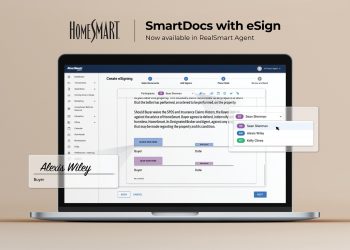TOP 5 IN REAL ESTATE, April 2010—(MCT)—In a move that will intensify competition with Internet search giant Google Inc., Facebook Inc. recently unveiled a series of new features designed to turn the Web into a place that connects people, not pages.
While signed into Facebook, users will be able to see their friends’ comments flowing from other websites as their buddies read news articles, shop or listen to songs by their favorite artists. Any website can make this option available to its visitors by installing a “like” button that lets users share news, music, movies or other content with their friends on and off Facebook.
With more than 400 million users, Facebook is already one of the Web’s most popular destinations. Now it’s aiming to spread its digital empire by making it easier for users to take their friends with them as they browse the rest of the Web.
The idea is for Facebook to deliver a more personalized experience on Facebook and elsewhere, according to Facebook founder Mark Zuckerberg. He was speaking at a convention hall in San Francisco before 1,500 software developers who build applications for Facebook, which has become a multibillion-dollar industry.
Clad in blue jeans and black hoodie, Zuckerberg made the case that the Web is at a turning point where more people are navigating using their real identity and bringing along their friends. They will be guided on that journey not by a search engine stringing together static pages but by their connections and interests, he said.
“We are building toward a Web where the default is social,” he said.
The new features could change how people experience the Web but also could raise privacy concerns.
Last year, Facebook unveiled Facebook Connect, which let people use their Facebook log-ins to sign in to other websites. Now when users are logged into Facebook, they will be able to see websites tailored to their interests and relationships. A music site such as Pandora will play songs from bands that friends are following while a news site such as CNN.com will show articles they read or commented on. Users can click on a “like” button on the site to share with Facebook friends the items they enjoyed.
Trailing its users around the Web could give Facebook even more invaluable information to target advertising as it looks to compete with online advertising leader Google. It’s also a move that has deep privacy implications especially if Facebook does not make it easy for users to opt out of sharing their activities outside of Facebook, analysts said.
The new features may also raise the hackles of users who expect their relationships and interactions on Facebook to be mostly private unlike on other services such as Twitter Inc. which is designed to broadcast information. Zuckerberg said users will continue to be able to choose which information will be publicly shared. But analysts, pointing to the social networking service’s previous privacy missteps, said Facebook would have to tread cautiously.
“Expect continued scrutiny over privacy as Facebook struggles to go open to compete with Google, dragging along users to be more public every step of the way,” Altimeter Group analyst Jeremiah Owyang said.
Regulators in the United States and Europe will keep a close eye on how Facebook rolls out the latest features, said privacy advocate Jeffrey Chester.
“Facebook is becoming digital ground zero in the fight to protect online privacy. It’s more concerned about selling its members eyeballs to big brand advertisers,” he said. “It hopes that by opening the floodgates of user data to its developers, it will reap online gold.”
(c) 2010, Los Angeles Times.










